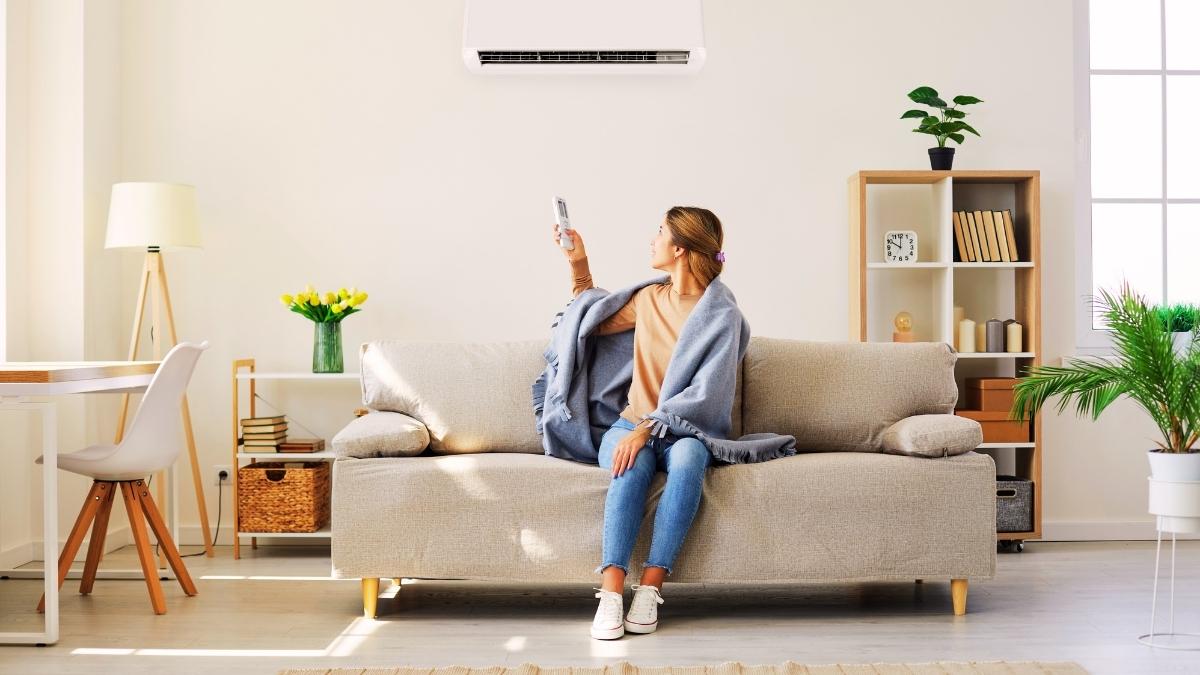Last Updated on February 10, 2025 by Kravelv Spiegel
The Impact of Air Conditioning on Your Health
Air conditioning does more than just cool your home—it shapes your indoor environment. If not properly maintained by a qualified HVAC contractor, your AC can circulate dust, mold spores, and bacteria, triggering allergies and respiratory issues. It can also reduce humidity to unhealthy levels, drying out your airways and making you more vulnerable to infections. Think of it as standing downwind of a dust storm you can’t see. Scheduling regular maintenance with an HVAC contractor can help keep your system clean and safe.
Poor indoor air quality can have long-term effects on your health. Prolonged exposure to airborne contaminants can contribute to chronic respiratory conditions, headaches, fatigue, and even exacerbate existing conditions like asthma and bronchitis. Children, the elderly, and individuals with compromised immune systems are especially susceptible to these hazards.
AC Systems Spread Mold and Bacteria
Mold and bacteria thrive in damp, dark areas like AC coils and drain pans. When moisture builds up in these spots, it creates the perfect breeding ground for contaminants. Once the system runs, these particles hitch a ride through your vents, spreading allergens, respiratory irritants, and musty odors throughout your home. An experienced HVAC contractor can inspect and clean these components to prevent mold growth and maintain indoor air quality.
Regular filter changes and duct cleaning can significantly reduce the spread of harmful particles. Many homeowners are unaware that ducts accumulate layers of dust and debris over time, creating an environment where bacteria can flourish. Professional duct cleaning, combined with antimicrobial treatments, can help mitigate these risks.
The Dangers of Overly Dry Indoor Air
Your body relies on moisture to defend itself against germs. When the air is too dry, your throat, nose, and lungs lose their natural protective barrier, making you more susceptible to colds, flu, and allergies. If you ever wake up feeling like you swallowed sandpaper, your AC may be over-drying the air.
Low humidity can also affect your home’s structure and furnishings. Wood furniture, flooring, and even musical instruments can crack or warp due to excessive dryness. Investing in a humidifier or adjusting your AC settings to maintain optimal indoor moisture levels can help protect both your health and your home.
The Consequences of Neglecting HVAC Maintenance
Neglecting AC maintenance is like skipping oil changes in your car—things might still run, but at a cost. Dirty filters, clogged drain lines, and moldy coils turn your HVAC system into a pollution machine, recirculating contaminants instead of filtering them out. This leads to poor air quality and potential health problems.
Routine HVAC maintenance includes checking refrigerant levels, inspecting electrical components, and cleaning key parts to prevent efficiency losses. A poorly maintained system also consumes more energy, leading to higher utility bills and a reduced lifespan for your unit. Homeowners who schedule regular tune-ups can enjoy better air quality, improved efficiency, and fewer costly repairs in the long run.
Healthier Cooling Methods
The best cooling methods go beyond temperature control and support air quality:
- Evaporative coolers add moisture, making them ideal for dry climates.
- Geothermal cooling reduces forced air circulation, lowering airborne allergens.
- Well-maintained AC units with high-quality filtration help keep air clean and healthy.
- Ductless mini-split systems provide zoned cooling with minimal air movement, reducing dust and allergen spread.
Preventing AC from Spreading Allergens and Pollutants
To make your AC an ally instead of an enemy:
- Use high-MERV or HEPA filters and replace them regularly.
- Schedule routine maintenance to keep coils and drain pans mold-free.
- Maintain indoor humidity at 40-50% to prevent excessive dryness.
- Consider an air purifier or a UV light system inside your HVAC unit to kill bacteria and mold before they circulate.
- Keep windows and doors closed when your AC is running to prevent outdoor pollutants from entering your home.
- Regularly vacuum and dust your home to reduce the buildup of allergens and contaminants.
Signs Your AC Is Making You Sick
If you experience frequent coughing, sneezing, congestion, itchy eyes, headaches, or notice a musty odor when your AC runs, your system could be spreading pollutants. If your symptoms improve when you leave home, your AC might be the culprit.
Other signs of poor air quality include increased dust accumulation, unusual humidity fluctuations, and worsening allergy symptoms. If you or your family members develop respiratory issues with no clear cause, it may be time to assess your HVAC system’s condition.
Choosing the Best Air Filters for Healthy Cooling
Air filters act like security guards for your home’s air:
- HEPA filters trap the smallest particles but can restrict airflow in standard AC units.
- High-MERV filters (13-16) offer a strong balance between airflow and filtration.
- Electrostatic filters help capture additional airborne allergens.
- Activated carbon filters remove odors and volatile organic compounds (VOCs).
- For severe allergies, a whole-home air purifier can provide an extra layer of protection.
Filters should be replaced every 1-3 months, depending on usage and air quality conditions. If you have pets, live in a high-pollution area, or suffer from allergies, more frequent replacements may be necessary.
Also Read: Best Air Purifiers for Asthma
Take Control of Your Indoor Air Quality
Your AC should enhance your comfort, not compromise your health. By keeping your system clean, maintaining proper humidity, and using quality filtration, you can ensure your home remains a cool and healthy space year-round.
Schedule a professional HVAC inspection today to assess your system’s condition and make necessary improvements. Investing in air quality solutions now can lead to long-term health benefits and a more comfortable living environment for you and your family.

